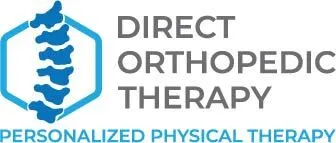Patients who are contemplating physical treatment often wonder, “Does physical therapy hurt? “
“No,” is the quick and straightforward response. There should be no pain during physical treatment.
You may be apprehensive or even nervous if you’ve never had physical therapy before. The region of your body that already causes you agony and anguish is about to be probed by an unfamiliar stranger.
You don’t have to worry about it. Let us clarify any physical therapy myths you may have heard over the years, and then come to your first visit with a positive attitude.
Learn more about services offered by Direct Orthopedic Therapy
Will my pain or discomfort worsen as a result of my physical therapy?
The answer to this question is a resounding “no.”
Patients in physical therapy often worry that their current level of discomfort may become worse due to their treatment.
However, as long as you and your physical therapist agree, no treatment should ever be excruciatingly unpleasant.
Because each patient is unique and has a different pain threshold, it is critical to have open lines of communication with them.
During treatment, your therapist will pay special attention to your needs and do everything they can to alleviate your discomfort.
So, is that to say you won’t experience any pain?
The answer is no.
Consider it this way…
Soreness in your muscles is common after exercising in a method your body isn’t used to, such as gardening or working out.
This is what we mean when we say something is “good pain.”
Discomfort can be a good thing because it aids in the healing process.
As you put in the time and effort, your body will begin to heal, and the discomfort will diminish.
Physical therapy requires active involvement. You will see results if you put in the effort, even if it is difficult.
Is Physical Therapy painful?
Physical treatment should not be painful by a certified physical therapist.
However, this can be a difficult task.
During and after each training session, you will experience pain and suffering.
Don’t be discouraged by this.
You must train your body to gain strength. Stretching and activities that test your comfort zone may be part of this routine, but they should never be uncomfortable.
Remember that therapy can be modified if it becomes too tough or uncomfortable for you to continue with it.
Your rehabilitation will be enhanced if you communicate your precise goals and reactions to therapy.
Final words:
Efforts to Minimize Pain during Physical Therapy
Now that you understand the difference between pain and soreness, you should tell your therapist about your bodily levels of comfort.
Your therapist will likely inquire about how you felt after your last session, what you think is improving, and what difficulties you encounter in therapy.
Your therapist relies on your openness and honesty to make necessary adjustments to your treatment plan to minimize any discomfort you may be experiencing.
Have more questions? Give us a call here


